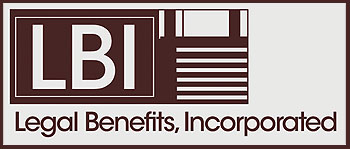I am talking about those unplanned life events that you never see coming. In the last article one of the paragraphs listed the 5 types of identity theft. In this article I am going to dive into the least known form of identity theft: Medical Identity.
I am not much on the “what if’s in life.” Being from Nebraska, it is common to believe this is not a problem we need to face because it only happens over there wherever that maybe. Rest assured, what you’re going to read can be unsettling.
Medical identity theft results from the fraudulent use of an individual’s PII (personal Identifiable information), SSN, or health insurance information to obtain medical goods and services, money through insurance fraud, or insurance coverage for treatments. This may result in a number of problems for the victim that might include: a collection account for a past due bill, medical insurance filing errors, or distorted medical records that could affect future medical treatment.
Medical identity theft is one of the more complicated and problematic types of identity theft that can occur. The reasons for these complications are mainly attributed to the lack of a central repository of medical history and the extensive privacy laws in relation to medical file disclosure.
What I am referring to in the above paragraph is when someone fraudulently uses your health insurance card, which acts like a debit card to make others well and make YOU ill in the process. The person who stole your medical identity can do damage to you and even your children. For example, what if they have a different blood type than you and your medical history gets altered? Now medical professionals might have to go through multiple medical files to find the ‘correct you’.
We all know that our doctor’s office asks for ID and some even a SSN card before treatment, right? That’s great. However, if an identity thief has your driver’s license and your social security number, there just isn’t much a hospital or clinic can do. Remember the number one way people’s information gets taken is data breaches. With medical records now online, you might feel like this cannot happen to you, but here is an example of some people who probably thought the exact same thing:
In February 2010, South Shore Hospital contracted with Pennsylvania-based Archive Data Solutions to erase and re-sell 473 data tapes containing personal information on 800,000 individuals. The data were not encrypted, and South Shore did not tell ADS that the tapes contained sensitive information (Bray, “Business Updates,” Boston Globe, 5/24). Data on the tapes included:
• Names; • Medical diagnoses;
• Financial account numbers; and
• Social Security numbers (Cheung, FierceHealthcare, 5/25).
The tapes were sent to a Texas subcontractor in three boxes, and the hospital later learned that only one of the boxes had arrived (“Business Updates,” Boston Globe, 5/24).
Read more: http://www.ihealthbeat.org/articles/2012/5/29/mass-hospital-faces-750000-settlement-over-data-breach.aspx#ixzz1yXTz44jT
Here are some tips to help keep this from happening to you:
1. Know your blood type and your children’s blood types. Ask your doctor for it before they start any treatments.
2. When the nurse asks you what your allergies are, ask them what they are.
3. If they require a photo ID and they take a copy of it, ask how it is stored and if you are uncomfortable with the answer, ask for the copy back.
In conclusion, we are never here to scare you but always to educate and bring a voice to this silent crime.
For information on how you can protect your identity, please contact Kyle with Legal Benefits, Incorporated at (402) 405-0438 or kyle@LBIncorp.com. Or visit them online at www.LBIncorp.com.

